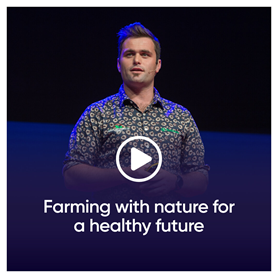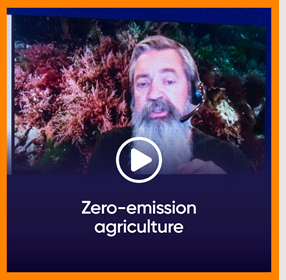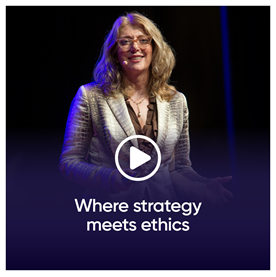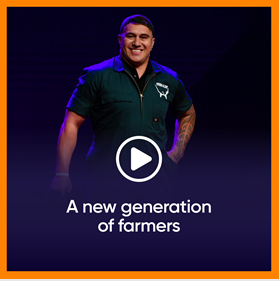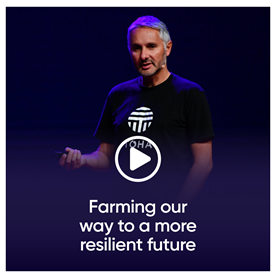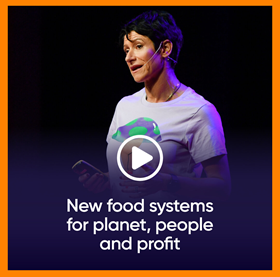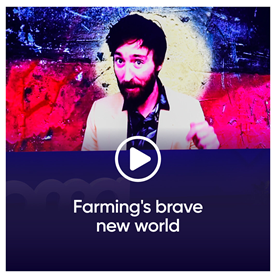2020 Water Challenge winners announced
- Bridge Hub 2020 Water Challenge aimed to solve water problems in the agri supply chain
- Challenge will commercialise trans-Tasman solutions in Australia and New Zealand to maximise impact
As researchers look to create water out of thin air, the future of agrifood innovation looks bright, but collaboration and investment will be the key to getting ideas off the page and into market, according to Craig Shapiro, co-CEO of Bridge Hub, which has just announced the winners of its 2020 Water Challenge.
Launched in February, the Bridge Hub 2020 Water Challenge aimed to uncover the best and brightest research, the most innovative ideas, and the best startups that positively impact water sustainability across our agrisystem. The global Challenge attracted over 150 researchers and entrepreneurs from Australia, New Zealand and Israel.
Winning solutions as diverse as creating water from air, measuring water with acoustics and sludge-free waste recycling for remote communities highlight that the Water Challenge has been successful in its aim of uncovering some of the leading cutting edge solutions currently being developed.
“The quality of not only the winning solutions but of all the applicants highlights that we have the capacity to achieve anything if we turn our minds to the task at hand. Our ability to solve problems across the entire agrifood supply chain is only limited by our imagination, as long as we have the right frameworks in place,” Craig says.
The Water Challenge has provided recognition and prize money to the winning teams, but just as important, it has created a connected and collaborative community from across the globe, all of whom share Bridge Hub’s passion for solving global water-related problems.
“While today marks the end of the Water Challenge, it is just the beginning of a bigger journey of working with a global community of like-minded organisations and individuals to transform many of the big ideas and solutions submitted to the Water Challenge into impactful and successful outcomes.”
The Water Challenge wraps up at a time when agrifood research bodies are increasing their focus on both commercialisation and adoption of research, climate change continues to present global challenges and Australian agriculture considers how it achieves its goal of becoming a $100 billion industry.
Governments in many jurisdictions are allocating significant funding to help underpin the future growth of the agriculture and food sectors with many positive initiatives underway. Many of these include a focus on drought resilience and water quality.
“To solve our water related problems we will always need investment,” Craig says. “The opportunity for future investment in agrifood tech solutions is in many cases enabled by government initiatives but it is private investment that will always be the prime driver to turn great ideas into commercially successful outcomes.”
Craig believes there will be an increasing pool of capital available to be allocated to investment opportunities in the agrifood tech sector. This includes capital from the growing number of global impact investors, who require normal financial returns but also want their investments to have a positive and sustainable impact on the environment or society.
“Ultimately, we need the private sector, research, and government working together to increase investment which will underwrite the successful and sustainable future for agriculture and food production. The establishment of industry led agrifood tech bodies such as AgritechNZ and Ausagritech will also help to drive investment towards the rapidly growing agrifood tech sector. We are extremely optimistic about the direction we’re heading and in particular how the ideas unlocked from the Bridge Hub 2020 Water Challenge can play a role in that sustainable future.”
Winners of the Bridge Hub 2020 Water Challenge were announced today during a virtual event.
BRIDGE HUB 2020 WATER CHALLENGE WINNERS
Australian Research Stream – sponsored by CSIRO
Advanced Capture of Water from the Atmosphere (ACWA)
Prof Chiara Neto, The University of Sydney
Ground breaking research that is working on a new water solution that aims to capture water from the air.
New Zealand Research Stream – sponsored by Zespri
Real-time control of irrigation through acoustic sensing to prevent runoff and pollution. (Acoustic sensing for Irrigation)
Dr Chandra Ghimire, AgResearch Ltd. Lincoln New Zealand
Research that is using acoustic technology to help irrigators to be smarter with their water efficiency.
Australian Startup Stream – sponsored by Commonwealth Bank
Streamwise DI
Paul Hatten, Clayton VIC
Waste Water solution that improves environmental outcomes and operating efficiencies of food manufacturers through the use of Artificial Intelligence.
New Zealand Startup Stream – Sponsored by Wharf42
RiverWatch
James Muir, Matarangi
A water quality solution that provides real time monitoring and decision making for our rivers and waterways.
Israel Startup Stream
LagunaTech
Clive Lipchin, Arava Institute for Environmental Studies, Kibbutz Ktura
Decentralised wastewater treatment solution that assists remote and off grid communities to create new water sources.
For more about the Challenge, visit waterchallenge.co
